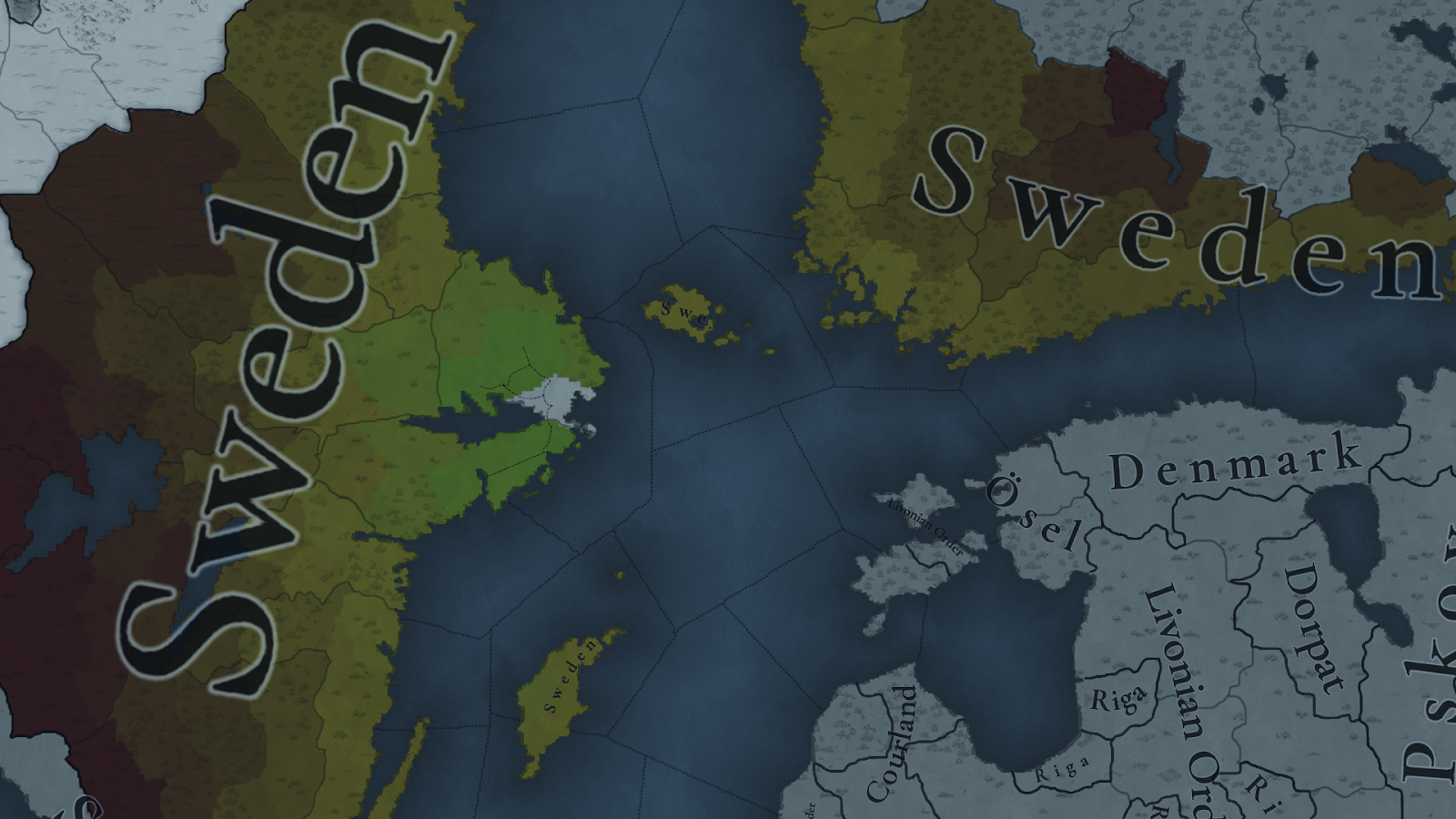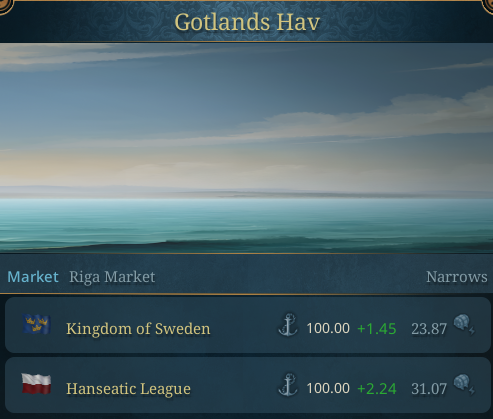Welcome to the sixth Tinto Talks, where we talk about the design and features of our not yet announced game, with the codename ‘Project Caesar’.
Hey, before jumping into todays topic, I would like to show something very fresh out of the oven, based on your feedback last week. This is why we are doing these Tinto Talks, to make Project Caesar your game as much as ours...

Today we will delve into three concepts that are rather new to our games, but first, we’ll talk about locations a bit more.
Not every location on the map is the same, especially not in a game of such scope as Project Caesar. By default, every ownable land location is a rural settlement, but there are two “upgrades” to it that can be done. First, you can find a town in a location, which allows you to increase the population capacity of the location and allows for a completely different set of buildings than a rural settlement. Finally, you can grant city rights to a town, which allows for even further advantages. Now you may wonder, why don’t I make every location into cities? Besides the cost and the population requirement, there is also the drawback that each of them tend to reduce your food production, while also adding more nobles, clergy and lots of burghers to your country.
Stockholm, Dublin and Belgrade are examples of towns at the start of the game, while cities include places like Beijing, Alexandria and Paris.

Here you can see the control that Sweden currently has.
Control
Every location that you own has a control value, which is primarily determined by the proximity it has to the capital, or another source of authority in your country. There are only a few things that can increase it above the proximity impact, but many things that can decrease it further.
This is probably the most important value you have, as it determines how much value you can get out of a location, as it directly impacts how much you can tax the population in that location, and the amount of levies they will contribute when called. A lack of control, reduces the crown power you gain from its population, while also reduces the potential manpower and sailors you can get, and weakens the market attraction of your own markets, making them likelier to belong to foreign markets if they have too low control.

Proximity
So what is proximity? It is basically a distance to capital value, where traveling on the open sea is extremely costly. Proximity is costly over land, but along coastlines where you have a high maritime presence you can keep a high proximity much further. Tracing proximity along a major river reduces the proximity cost a fair bit, and if you build a road network that will further reduce the proximity costs.
There are buildings that you can build, like a Bailiff that will act as a smaller proximity source, but that has the slight drawback of adding more nobles to the location, and with a cost in food for them.
Maritime Presence
In every coastal location around your locations, or where you have special buildings, you have a maritime presence. This is slowly built up over time based on your ports and other buildings you have in adjacent locations. Placing a navy in the location helps improve it quicker, but blockades and pirates will decrease it quickly, making it absolutely vital to protect your coastlines in a war, or you’ll suffer the consequences for a long time.
As mentioned earlier, the maritime presence impacts the proximity calculations, but it also impacts the power of your merchants in the market the seazone is a part of.

Stay tuned, next week we’ll be doing an overview of the economy system, which has quite a lot of new features, as well as features from older games.
Hey, before jumping into todays topic, I would like to show something very fresh out of the oven, based on your feedback last week. This is why we are doing these Tinto Talks, to make Project Caesar your game as much as ours...

Today we will delve into three concepts that are rather new to our games, but first, we’ll talk about locations a bit more.
Not every location on the map is the same, especially not in a game of such scope as Project Caesar. By default, every ownable land location is a rural settlement, but there are two “upgrades” to it that can be done. First, you can find a town in a location, which allows you to increase the population capacity of the location and allows for a completely different set of buildings than a rural settlement. Finally, you can grant city rights to a town, which allows for even further advantages. Now you may wonder, why don’t I make every location into cities? Besides the cost and the population requirement, there is also the drawback that each of them tend to reduce your food production, while also adding more nobles, clergy and lots of burghers to your country.
Stockholm, Dublin and Belgrade are examples of towns at the start of the game, while cities include places like Beijing, Alexandria and Paris.
Here you can see the control that Sweden currently has.
Control
Every location that you own has a control value, which is primarily determined by the proximity it has to the capital, or another source of authority in your country. There are only a few things that can increase it above the proximity impact, but many things that can decrease it further.
This is probably the most important value you have, as it determines how much value you can get out of a location, as it directly impacts how much you can tax the population in that location, and the amount of levies they will contribute when called. A lack of control, reduces the crown power you gain from its population, while also reduces the potential manpower and sailors you can get, and weakens the market attraction of your own markets, making them likelier to belong to foreign markets if they have too low control.

Proximity
So what is proximity? It is basically a distance to capital value, where traveling on the open sea is extremely costly. Proximity is costly over land, but along coastlines where you have a high maritime presence you can keep a high proximity much further. Tracing proximity along a major river reduces the proximity cost a fair bit, and if you build a road network that will further reduce the proximity costs.
There are buildings that you can build, like a Bailiff that will act as a smaller proximity source, but that has the slight drawback of adding more nobles to the location, and with a cost in food for them.
Maritime Presence
In every coastal location around your locations, or where you have special buildings, you have a maritime presence. This is slowly built up over time based on your ports and other buildings you have in adjacent locations. Placing a navy in the location helps improve it quicker, but blockades and pirates will decrease it quickly, making it absolutely vital to protect your coastlines in a war, or you’ll suffer the consequences for a long time.
As mentioned earlier, the maritime presence impacts the proximity calculations, but it also impacts the power of your merchants in the market the seazone is a part of.
Stay tuned, next week we’ll be doing an overview of the economy system, which has quite a lot of new features, as well as features from older games.




